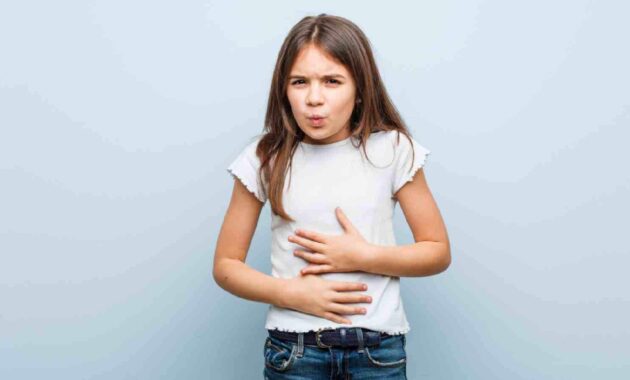Diarrhoea is a common ailment that affects children worldwide, causing discomfort and concern for parents. It is characterised by loose, watery stools and can be accompanied by abdominal pain, nausea, and dehydration. While diarrhoea can occur at any age at any given time, it becomes highly prevalent among children, especially during the monsoon season. This is due to various contributing factors such as an underdeveloped immune system, making them more susceptible to infections caused by bacteria, viruses, and parasites. Additionally, young children often have a habit of putting objects in their mouths, which increases the likelihood of ingesting harmful bacteria.
Therefore, it is crucial for parents to understand how to provide better care for their children during this period and explore the best possible ways to manage health issues such as diarrhoea in kids. This includes considering dietary considerations, taking precautions, utilising home remedies, finding ways to strengthen the immune system, knowing when to seek medical assistance, and implementing general care tips for this period.

Why is diarrhoea common for children during monsoon?
Diarrhoea is more common during the monsoon due to various factors. The increased humidity and rainfall create an environment that promotes the growth of bacteria, viruses, and parasites, which can cause gastrointestinal infections. Additionally, water sources may become contaminated, leading to the ingestion of harmful microorganisms during monsoon. Children, with their developing immune systems, are more vulnerable to these pathogens, making them more prone to diarrhoea during this season. Furthermore, our digestive system and immune system tends to become weaker due to high humidity, lack of sunlight, increased melatonin levels which contribute to the stomach and digestive issues.
Children should eat healthy to avoid diarrhoea in monsoon
Proper nutrition is crucial for children, especially during the monsoon season. As their immune systems are still developing, eating a balanced diet is essential. Therefore, including foods that are rich in vitamins, minerals, and antioxidants is essential to support their overall health and immunity. Some dietary recommendations include:
- Offering a variety of seasonal fruits, vegetables, nuts and seeds to provide essential nutrients and antioxidants
- Encouraging the consumption of probiotic-rich foods like yogurt to promote a healthy gut
- Offering warm, freshly cooked meals and avoiding raw or junk foods
- Use digestive spices such as garlic, ginger, cumin, and coriander while cooking food
- Children should drink plenty of clean, purified water to stay hydrated. Parents can also offer coconut water, butter milk, fruit juices, and more to their children.
More tips to prevent diarrhoea in monsoon
Apart from a nutritious diet, parents can take additional precautions to protect their children from diarrhoea and other monsoon-related illnesses. These include:
- Teaching children proper hand washing techniques with soap and water before meals and after using the toilet.
- Encouraging children to avoid street food and consume freshly cooked meals at home.
- Ensuring that drinking water is purified by boiling or using a water purifier.
- Keeping children away from stagnant water or puddles to prevent waterborne infections.
- Maintaining cleanliness and hygiene at home, especially in the kitchen and bathroom areas.
- Ensuring proper ventilation in living spaces to reduce humidity and prevent the growth of mould and bacteria.

Home remedies to treat diarrhoea in monsoon
While medical attention is necessary for severe cases, mild episodes of diarrhoea can often be managed at home. This can be achieved by providing oral rehydration solution (ORS) to replenish loss of fluids and electrolytes. Including easily digestible foods such as boiled potatoes, bananas, and rice in the diet can help firm up the stools. Introducing probiotic-rich foods like yogurt can also be beneficial as they help restore the balance of good bacteria in the gut, aiding in the recovery from diarrhoea.
Apart from following a balanced diet and good hygiene habits, parents should make sure that their child gets sufficient sleep and rest. A well-rested body is better equipped to fight off infections. Additionally, encouraging child to engage in physical activities and exercise regularly also helps boost immunity and overall health.
Select Topics of your interest and let us customize your feed.
PERSONALISE NOW
When to see a doctor?
While most cases of diarrhoea resolve on their own, it is crucial to seek doctor’s consultation in certain situations. These include:
- when diarrhoea persists for more than 24 to 48 hours
- blood or mucus in the stool
- signs of dehydration like decreased urine output
- dry mouth
- excessive thirst
- lethargy
- sunken eyes
- high fever (above 101°F or 38.3°C)
- severe abdominal pain accompanies diarrhoea
- persistent vomiting or other concerning symptoms that accompany diarrhoea.
The doctor can prescribe some antibiotics when bacterial infections are the cause and may ask for increased intake of fluids if the weakness persists.
By taking necessary precautions, maintaining a strong immune system, and providing appropriate care, the parents can minimise the risk of diarrhea and help alleviate their child’s discomfort and promote a speedy recovery.
#Diarrhoea #children #Monsoon #tips #protect #kids
